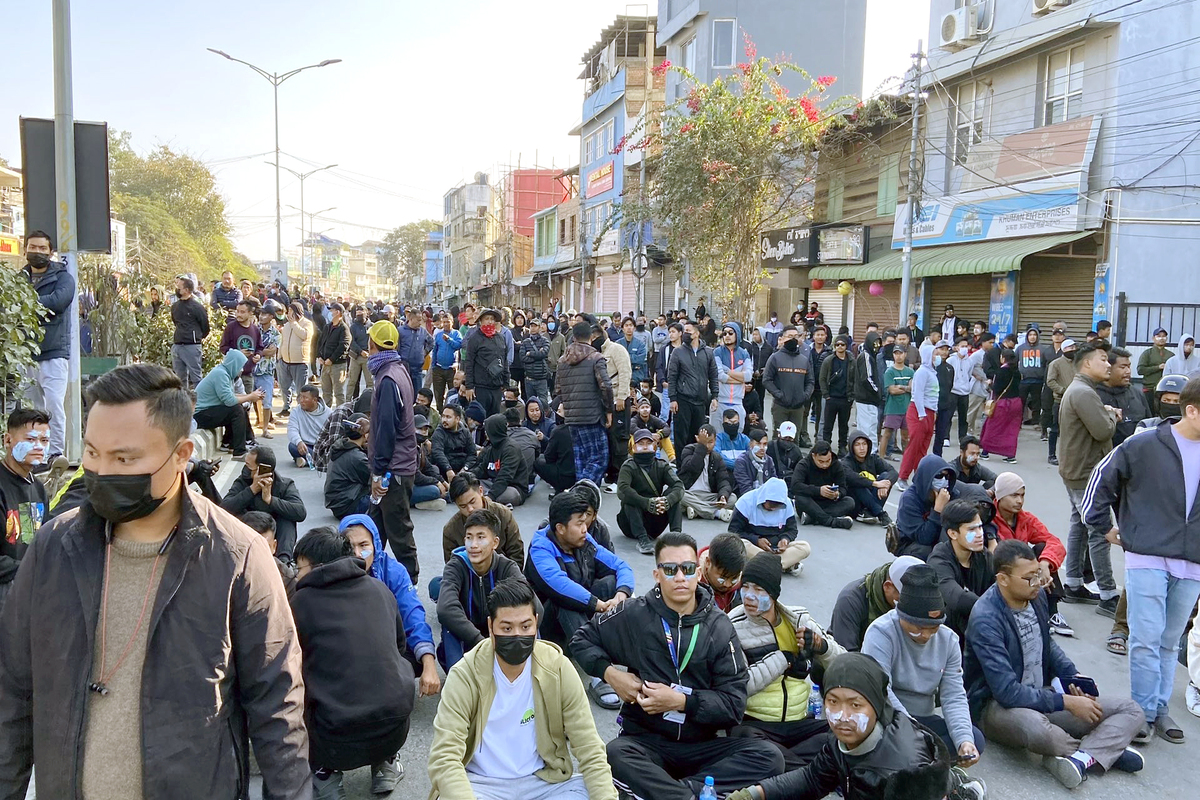Australia withdraws travel advisory for Assam except AFSPA-hit districts
Assam Chief Minister Himanta Biswa Sarma said on Thursday thatAustralia has withdrawn its travel advisory for Assam, allowing itscitizens to visit most parts of the state.

Assam Chief Minister Himanta Biswa Sarma said on Thursday thatAustralia has withdrawn its travel advisory for Assam, allowing itscitizens to visit most parts of the state.

In a demonstration of unity and defiance, thousands of people gathered at THAU Ground in Imphal on International Human Rights Day to demand the repeal of the Armed Forces (Special Powers) Act (AFSPA), a law criticised for its sweeping powers and alleged human rights violations.

Thousands of protesters rallied in the Lamlai constituency of Imphal East district on Thursday, demanding the repeal of the Armed Forces (Special Powers) Act (AFSPA) and justice for the killings of three women and three children in Jiribam district.

Civil society organizations in the Imphal East district of Manipur staged a protest rally denouncing the reimposition of the Armed Forces Special Powers Act (AFSPA) and condemning the brutal killing of six Jiribam hostages by suspected Kuki-Zo militants.

The Armed Forces (Special Powers) Act (AFSPA) has been extended for six more months in the districts of Tinsukia, Dibrugarh, Charaideo, and Sivasagar in Assam.
Assam Chief Minister Himanta Biswa Sarma on Monday said that AFSPA will be completely withdrawn from the state within this year.
The Home Minister hailed the PM for bringing a positive change in the lives of the people of the Northeast and connecting the region with the hearts of the rest of India.
Home Minister Amit Shah implemented the Modi Government's policy of development with firmness in Jammu and Kashmir and launched several projects.
Amit Shah along with BJP president J.P. Nadda inaugurated Assam BJP's new headquarters in Guwahati. The six-storey building was named after former Prime Minister Atal Bihari Vajpayee.
Shah announced the much expected decision in three separate tweets when most of the political parties and NGOs have been demanding to repeal the AFSPA and the demand intensified after the security forces killed 14 people and injured 30 others in Mon district of Nagaland on December 4 and 5 last year.